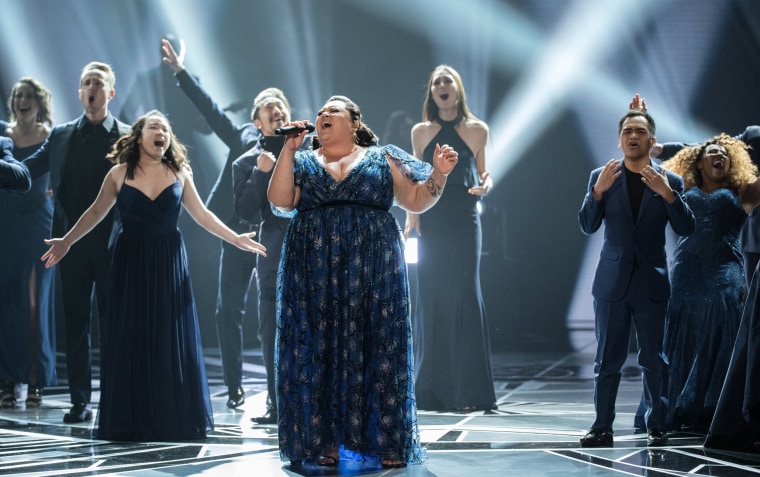I used to want to look like every European person that was being held up as a standard of beauty, whether in the industry or in life. Then I just realized that it's not in my genetic make-up. I decided instead to go for the gold in whatever I'm doing, and just be as healthy as I can be.
The parts that I get to play are not based around the European beauty standards: They're more about character, and I love that. I was never one of those actors who believed, "I'm so gonna be an ingenue." I already knew that wasn't gonna happen and I decided not to torture myself with it. I refused to be that person who said, I will be on every diet.net and see if this works. I needed the peace of mind to not do that.
Not to say that it still doesn't suck when I walk past a mirror some times. But it helps to know that I'm not the only one who feels that way. There are skinnier girls out there, wearing Spanx because they're like I can't stand my body. I can't handle any of this.
I think all of us are always gonna be tortured by some sense of inadequacy, no matter what.
Women put ourselves through so much; really, everybody does, it's not a gendered thing. I think all of us are always gonna be tortured by some sense of inadequacy, no matter what. I don't know if there's a way to tell people not do this to themselves.
The only way to actually kill that sense of solitary inadequacy is to connect with other people. And then, when they say, "Oh I feel that way too," you have that moment of, What? The grass is always greener over there; everyone thinks other people have it better than they do. But then you realize you're not that much different from anybody else, and that everybody has insecurities.
As much as each of us is physically and intellectually individual, we're all humans. We're all the same and all so different.
If you look around, every single person looks different — unless you come from your own tribe and your own family and your own bloodline, and that looks the same. But if you go on Ancenstry.com, people are looking for where they are and where they come from and then they realize, Oh well no wonder I look like this. I know where I'm from: My father's from England and my mother was from New Zealand, but sometimes people will assume that I speak Spanish, that I'm Hispanic or Latina or half African-American. None of those are correct, because nobody knows about the Polynesian triangle.
So when I have an opportunity, I tell people, "This is where I'm from and this is who I am. This is what my culture is, physically and mentally and spiritually. "
The beauty in explaining myself is that other people get to know about my journey of getting to this place, and about the importance of embracing all of our struggles. Embrace the fact that you're biracial, or a first generation American, or that you are (if you want to say it) a "plus-sized" girl or guy — or a skinny guy or girl who just doesn't think that he or she is good enough. But know that, what it boils down to, is that none of us will never think we're good enough. And that we all torture ourselves with these feelings of inadequacy non-stop.
We're all the same as much as we're so different, and we should totally bask in that. We all have the same need to connect, and that will never go away because we're human beings and we're alive. And it's in those connections that we can begin to realize that everyone feels like they're not right, not yet.
As told to THINK editor Megan Carpentier, edited and condensed for clarity.
